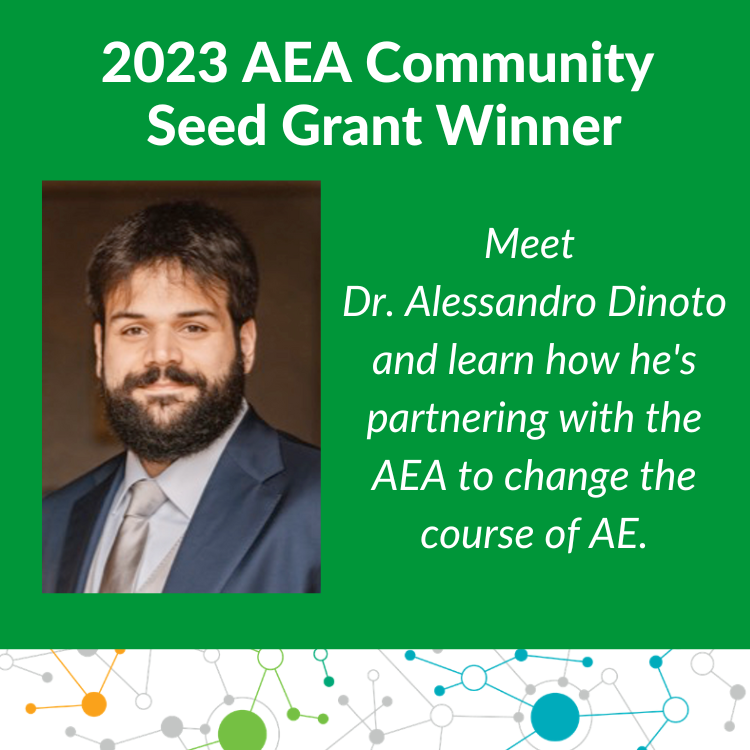Meet Dr. Alessandro Dinoto
August 15, 2023

Dr. Alessandro Dinoto (University of Verona, Verona, Italy) was awarded a 2023 AEA Community Seed Grant for Investigating the role of complement activation and antibody subclasses in anti-LGI1 and anti-CASPR2 encephalitis: a pilot study. Learn more about his research and how it will impact those affected with autoimmune encephalitis. The start date for the award is September 1, 2023.
You have been awarded an AEA Community Seed Grant, can you tell us more about the study you plan to do?
Our study focuses on the potential role of complement in patients with anti-LGI1 and anti-CASPR2 encephalitis. These disorders are typically associated with IgG4 subclass antibodies, which bind their target blocking its functioning, but are unable to activate complement. However, some patients display antibodies of both IgG4 and IgG1 subclasses. Although we know that IgG1 antibodies can activate complement, whether complement plays a pathogenic role in these specific conditions is still unclear. Neuropathological studies suggest that the deposition of complement proteins occurs in the brain of patients affected by these encephalitides, but its biological mechanisms and clinical relevance remain unclear.
Our study aims to investigate the role of complement in these disorders by studying complement factors in serum and cerebrospinal fluids of patients affected by LGI1/CASPR2 encephalitis in comparison with controls (i.e. healthy subjects or patients with multiple sclerosis) in whom complement does not play a major role. Furthermore, we aim to investigate the capability of autoantibodies, in particular those of IgG1 subclass, to activate complement in an in-vitro model employing cells over-expressing LGI1 or CASPR2 proteins on their surface. Lastly, we aim to establish whether complement activation may be a prognostic factor in these conditions.
We are very grateful for this award and are very excited to start this project!
How will your study help patients and families affected by AE?
Our study will be helpful for patients and their families in different ways. First, our results will help to characterize a “grey zone” of the molecular pathogenesis of LGI1 and CASPR2 encephalitis, in particular in relation to the role of complement involvement. Secondly, we will investigate whether complement could play a role in disease prognostication, an extremely relevant topic as the identification of early prognostic factors is currently lacking but crucial to guide treatment decisions and to properly inform patients and their families regarding the disease they are facing. Finally, by clarifying complement involvement, our results will give relevant clues to design novel potential treatments for patients with AE.
Tell us more about yourself and your affiliation?
I am Alessandro Dinoto, a 33-years-old trained neurologist with a clinical and research focus on neuroimmunology and a special interest for diagnostic assays and for investigating the underlying mechanisms of neuroimmune disorders. Currently, I am a PhD student under the supervision of Dr. Sara Mariotto at the University of Verona. My PhD research topic is focused on autoimmune encephalitis, and in particular my aims are to implement novel diagnostic assays, to investigate their clinical features, to study potential biomarkers of disease activity/prognosis, and to clarify the underlying pathogenesis of these conditions. At the University of Verona, the Neuroimmunology group led by Dr. Mariotto provides diagnostic assays for antibody-mediated disorders of the nervous system for both clinical and research purposes, and it has an established experience in biomarkers assessment for different neurological disorders. Furthermore, the group provides inpatient and outpatient clinical care for patients affected by different neuroimmune disorders, including autoimmune encephalitis. During the first part of my PhD, I established diagnostic assays using in-house cell-based techniques and contributed to different studies collecting clinical data of patients with autoimmune encephalitis and analyzing their biomarker and immunological profile.
Thank you to the entire AE Alliance community for the commitment to changing the course of AE. Thank you to the researchers applying for the AEA Community Seed Grant program and to the AE Alliance community, friends and family members for donating to the AEA Research Network. It is your donations that allow us to fund research focused on improving the lives of people living with AE.
Together, we are changing the course of AE.